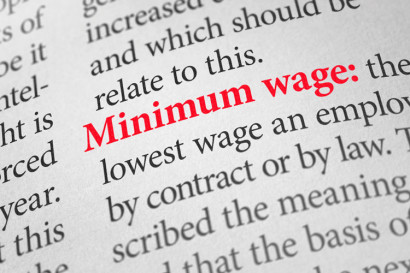Study sees positive impact of raising New York’s minimum wage to $15 an hour
A proposed gradual increase in New York’s minimum wage from $9 to $15 an hour would increase wages by an average of 23 percent for nearly 3.2 million workers by mid- 2021 and will not have a negative effect on overall employment, says a comprehensive new study released today by UC Berkeley.

New York Gov. Andrew Cuomo is seeking legislative support to increase the state’s minimum wage to $15 an hour by Dec. 31, 2018, in New York City, and by July 1, 2021, in the rest of the state. Californians may vote on a similar proposal in November.
“The policy will have large positive effects on living standards and very small effects on employment,” concludes UC Berkeley’s team of labor market researchers from the Institute for Research on Labor and Employment in the latest in a series of studies of minimum wage policies under consideration or being implemented by cities and states across the country.
The New York analysis is based on a comprehensive new labor market model that the researchers developed to project how workers, businesses and consumers will adjust over the five years of the higher minimum wage’s phase-in. The model draws on an extensive academic literature on the economics of labor markets, business practices and consumer markets and examines the interactions among the various effects.
If New York enacts a $15 minimum wage, the Berkeley team forecasts some additional automation in low-wage industries, with higher payroll costs for businesses partly offset by savings in employee turnover expenses and employee productivity gains. Consumers would absorb a 0.2 percent annual price increase over the phase-in, equivalent to about a nickel for a $3 box of Cheerios. Consumer inflation has averaged nearly 2 percent a year in recent years.
Among the other key findings:
- About 37 percent of the New York workforce will benefit from increased earnings.
- For those receiving higher wages, annual pay will increase $4,900 a year on average (in 2015 dollars), boosting consumer spending.
- Three industries account for nearly half of the workers getting increases: retail (18 percent), health care and social assistance (16 percent) and restaurants (14 percent).
- Overall payroll costs in the state will increase by only 3.2 percent, since many businesses already pay over $15 and many workers getting a raise already earn over $9, the state’s current minimum wage. Also, labor costs average one-fourth of business operating costs.
- Businesses will experience lower employee turnover, generating savings in recruitment and retention costs that will offset about one-eighth of the higher payroll costs. Worker productivity will also increase.
Putting all these effects together, the report estimates a very small net gain of about 3,200 jobs after five years, equivalent to 0.04 percent of 2021 employment in New York state.
“We looked carefully at both sides of the equation, the effects on businesses and the effects on workers. Businesses will adapt,” said study lead author Michael Reich. “Efficiencies and turnover saving will offset a good part of the wage increases and modest prices increases – spread across all consumers — will cover the rest. The increased consumer spending from the higher wages will generate more business and jobs.”
Reich said that it turns out that these effects largely offset each other and the net employment effects of the minimum wage are very small.
“Looking at the entire picture, the gains for low-wage workers are significant and a higher minimum wage means a more widely-shared prosperity in New York,” Reich concluded.
The report notes that effects will vary among geographic regions and industries and that it does not factor in impacts of higher wages on the health of workers and their children, which are likely to be positive.
The lead researcher for the study is Reich, a UC Berkeley economics professor, former director of the Institute for Research on Labor and Employment and chair of its Center on Wage and Employment Dynamics. The other authors are labor economist and CWED co-chair Sylvia Allegretto; UC Berkeley Center for Labor Research and Employment chair Ken Jacobs; and IRLE economics researcher Claire Montialoux.
